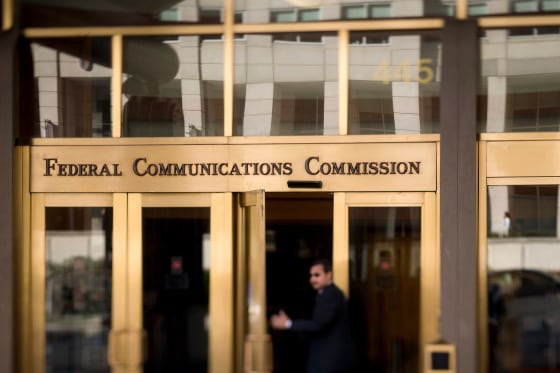
Washington By agreeing to hear a case on Friday regarding a Federal Communications Commission program that mandates that businesses fund telecommunications services in underdeveloped areas, the Supreme Court may further erode the authority of federal agencies.
In a court with a conservative majority of 6-3 that supports their positions, the case represents the most recent chance for corporate interests to stifle regulators.
The court asked the attorneys to explain whether the legal disagreement might be moot, leaving up the potential of avoiding a decision in the case.
Whether Congress gave the FCC too much power to decide how much firms should pay in subsidies—a figure that is currently in the billions of dollars—is the larger legal question at stake in this case. The court might adopt the so-called “nondelegation doctrine.”
The approach, which conservative judges have expressed sympathy for but have not completely adopted, would limit Congress’s power to enact open-ended legislation that grants agencies a great deal of discretion. A court decision against the FCC would allow for judicial review of other long-standing policies on a variety of topics currently governed by the federal government, such as banking and the environment.
One of the two interconnected questions raised by the FCC lawsuit is whether Congress went beyond its authority. The second question is whether the FCC could give a private company the power to choose the payment amounts.
Both the FCC and a coalition led by a conservative organization called Consumers’ Research that contested the existing system requested the Supreme Court’s opinion due to contradictory decisions made by lower courts.
The aforementioned 1996 statute mandated that the FCC establish the Universal Service Fund, which mandates that telecom companies make payments to support “universal service” in rural and low-income communities. In order to manage the fund, the FCC established the Universal Service Administrative Company, a private company, the next year.
After the 5th U.S. Circuit Court of Appeals, located in New Orleans, decided against the FCC, the agency turned to the Supreme Court.
Andrew Oldham, a conservative judge, penned the majority opinion, calling the scheme a “misbegotten tax” that goes against “bedrock constitutional principles.”
Earlier this year, the Supreme Court ruled against federal agencies in a number of cases, including one that overturned a precedent that had been in place for 40 years and allowed agencies to interpret vague legislation. On the basis of ideology, all three decisions were decided 6-3, with liberal justices dissenting and conservative justices in the majority.
The decisions are the outcome of a protracted struggle against the administrative state supported by conservative politicians and commercial groups. The judicial nominees chosen by President-elect Donald Trump’s first administration were partly motivated by their dislike of government bureaucracy. On the Supreme Court are three of them. Another is Oldham, who sits on the appeals court.
However, Trump has stated that he will be assertive in his use of executive power in his second term, especially with his proposal to impose sweeping tariffs, so a finding that restricts the authority of the executive branch’s agencies could present challenges.
Note: Every piece of content is rigorously reviewed by our team of experienced writers and editors to ensure its accuracy. Our writers use credible sources and adhere to strict fact-checking protocols to verify all claims and data before publication. If an error is identified, we promptly correct it and strive for transparency in all updates, feel free to reach out to us via email. We appreciate your trust and support!
